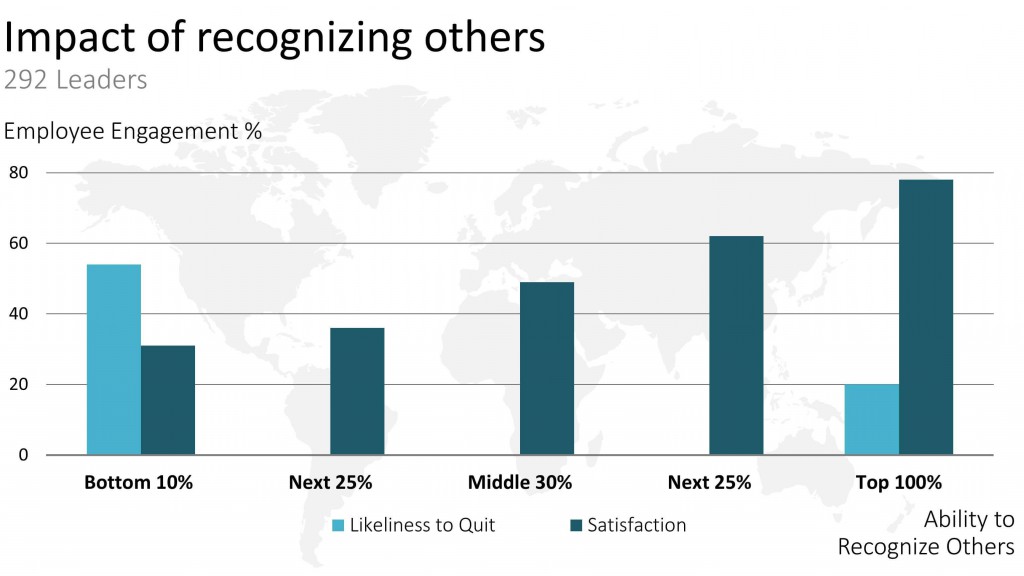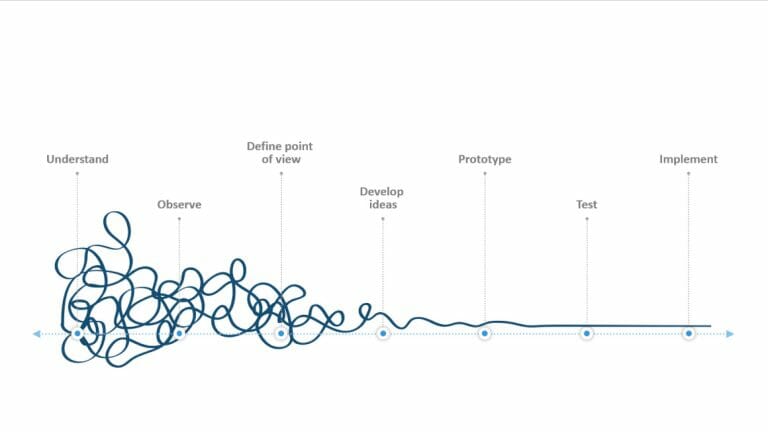
The Power of Praise in the Workplace
The vast majority of us look for things that could be improved or need to be fixed, but do we also actively recognize good work? The power of praise is widely underestimated, in that about a third of the population could benefit from improving their ability to recognize others (Folkman).
What Studies Show
In a recent study by Joseph Folkman, 292 leaders were assessed on recognizing skills. The test found that results strongly correlated with employee morale reports. Data shows that leaders who were the poorest at recognizing others also had a high percentage of employees lacking motivation and contemplated on quitting. On the other hand, the top 10% of leaders who recognized employees had a high involvement rate of 77% and only 20% possible turnover.
Similarly, the Gallup Organization conducted a worldwide research, surveying more than four million employees on the importance of praise and recognition. Results confirm that employees who are recognized have a higher satisfaction and loyalty rate than those who are not.
Furthermore, the Carrot Principle presents a 10-year study that surveyed more than 200,000 employees and managers and showed similar findings.
Reasons for Results
Researchers and psychologists have been fascinated with the effects of praise in the workplace for a long time. Increased self-esteem and happiness are among common reactions to appreciation or positive feedback. Just think about the last time someone told you, “You did a great job, thank you.” Isn’t it a great feeling?
Praise triggers the release of dopamine, a neurotransmitter that helps control the reward and pleasure centers of the brain. Dopamine also contributes to innovative thinking and creative problem-solving! In essence, it’s not just a benefit to get praised, but managers and leaders also benefit from a better working team and an increased drive for innovation.





